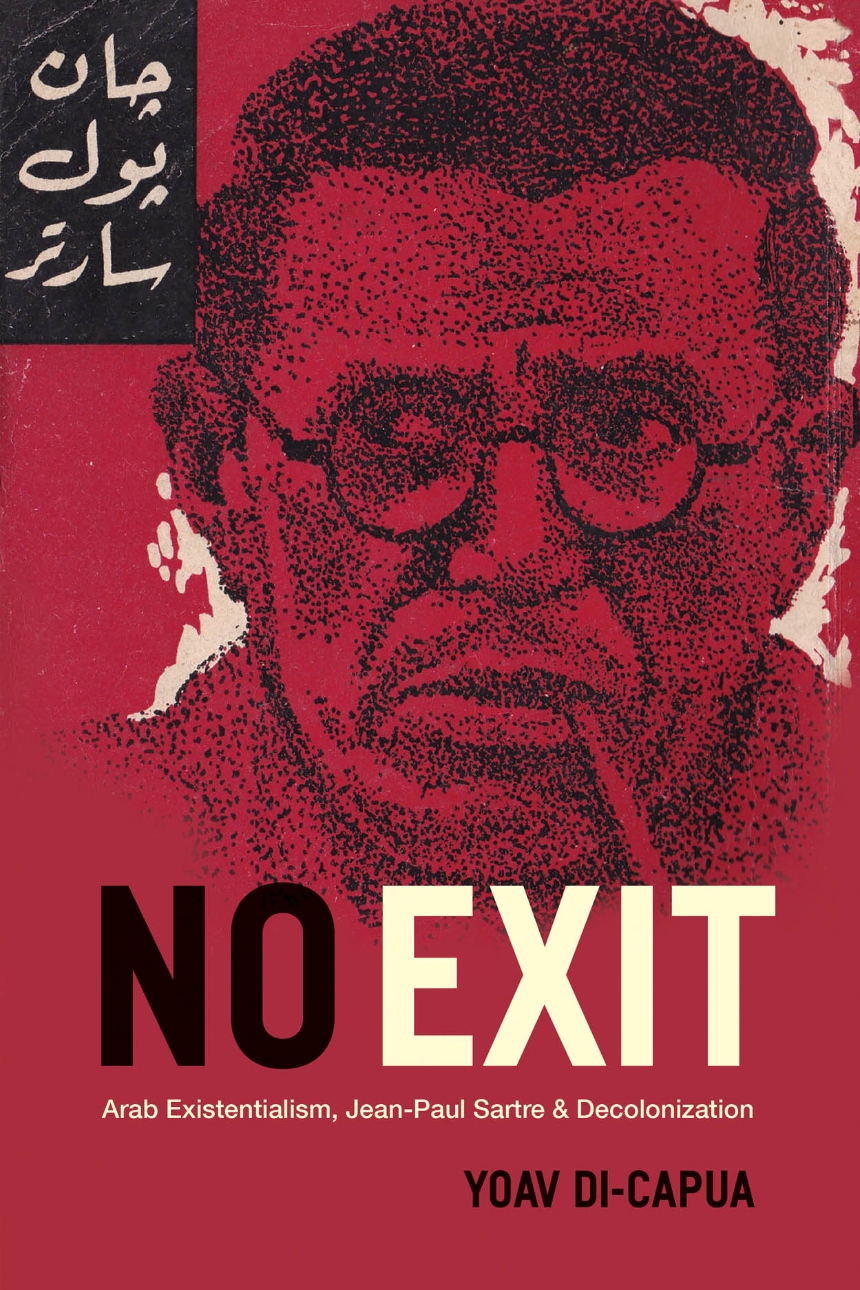No Exit
Arab Existentialism, Jean-Paul Sartre, and Decolonization
9780226503509
9780226499741
9780226499888
No Exit
Arab Existentialism, Jean-Paul Sartre, and Decolonization
It is a curious and relatively little-known fact that for two decades—from the end of World War II until the late 1960s—existentialism’s most fertile ground outside of Europe was in the Middle East, and Jean-Paul Sartre was the Arab intelligentsia’s uncontested champion. In the Arab world, neither before nor since has another Western intellectual been so widely translated, debated, and celebrated.
By closely following the remarkable career of Arab existentialism, Yoav Di-Capua reconstructs the cosmopolitan milieu of the generation that tried to articulate a political and philosophical vision for an egalitarian postcolonial world. He tells this story by touring a fascinating selection of Arabic and Hebrew archives, including unpublished diaries and interviews. Tragically, the warm and hopeful relationships forged between Arab intellectuals, Sartre, Simone de Beauvoir, and others ended when, on the eve of the 1967 war, Sartre failed to embrace the Palestinian cause. Today, when the prospect of global ethical engagement seems to be slipping ever farther out of reach, No Exit provides a timely, humanistic account of the intellectual hopes, struggles, and victories that shaped the Arab experience of decolonization and a delightfully wide-ranging excavation of existentialism’s non-Western history.
By closely following the remarkable career of Arab existentialism, Yoav Di-Capua reconstructs the cosmopolitan milieu of the generation that tried to articulate a political and philosophical vision for an egalitarian postcolonial world. He tells this story by touring a fascinating selection of Arabic and Hebrew archives, including unpublished diaries and interviews. Tragically, the warm and hopeful relationships forged between Arab intellectuals, Sartre, Simone de Beauvoir, and others ended when, on the eve of the 1967 war, Sartre failed to embrace the Palestinian cause. Today, when the prospect of global ethical engagement seems to be slipping ever farther out of reach, No Exit provides a timely, humanistic account of the intellectual hopes, struggles, and victories that shaped the Arab experience of decolonization and a delightfully wide-ranging excavation of existentialism’s non-Western history.
336 pages | 9 halftones | 6 x 9 | © 2018
History: History of Ideas
Philosophy: General Philosophy, History and Classic Works
Reviews
Table of Contents
Note on Transliteration
Acknowledgments
Acknowledgments
Introduction
1 The Visit
2 Why Existentialism?
3 Commitment
4 Meet the State
5 Unfreedom’s Counterculture
6 A Beachhead in the Sixties
7 Toward Universal Emancipation
8 High Hopes
9 Fiasco
Epilogue: A Cosmic No Exit
Notes
Selected Translations
Bibliography
Index
Selected Translations
Bibliography
Index
Awards
UT Austin/University Co-Op Society: Robert W. Hamilton Book Awards
Finalist
